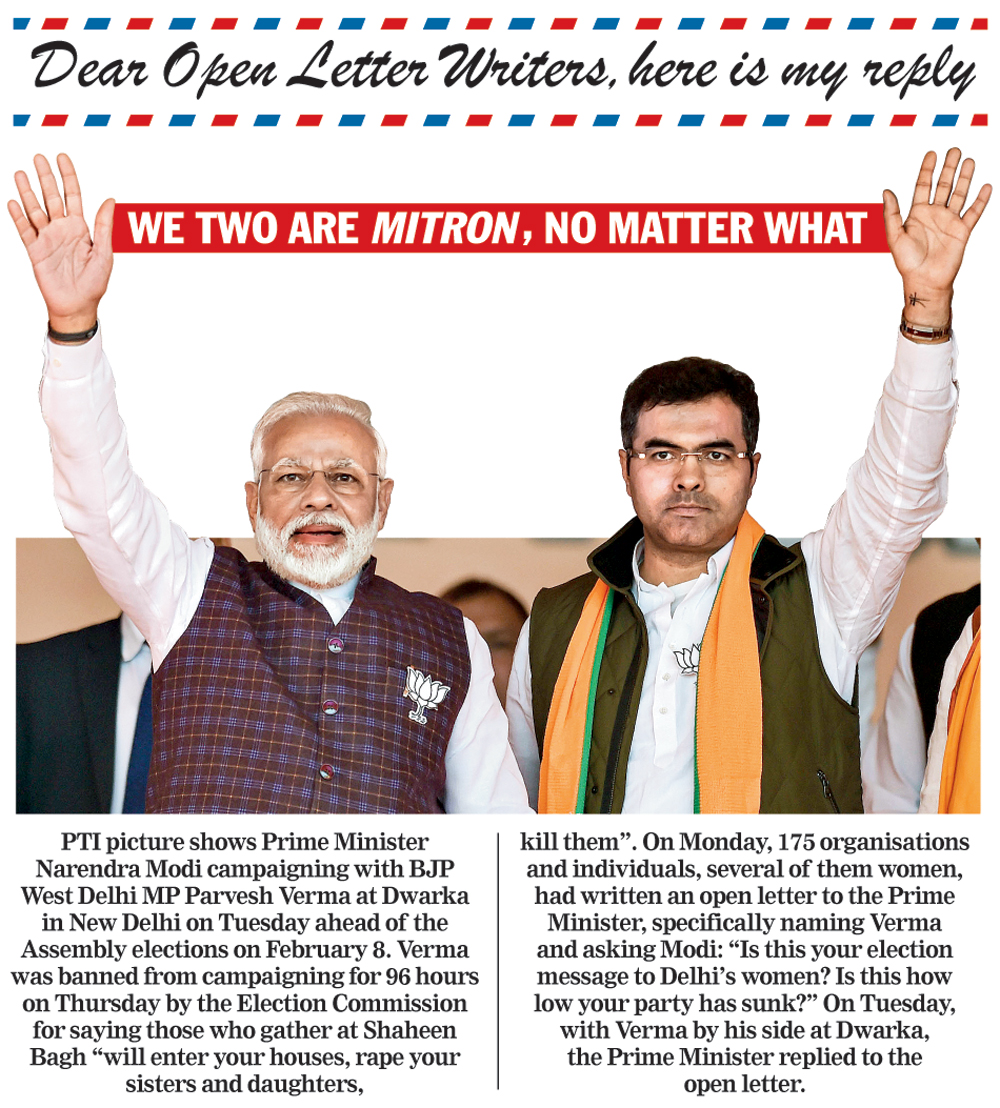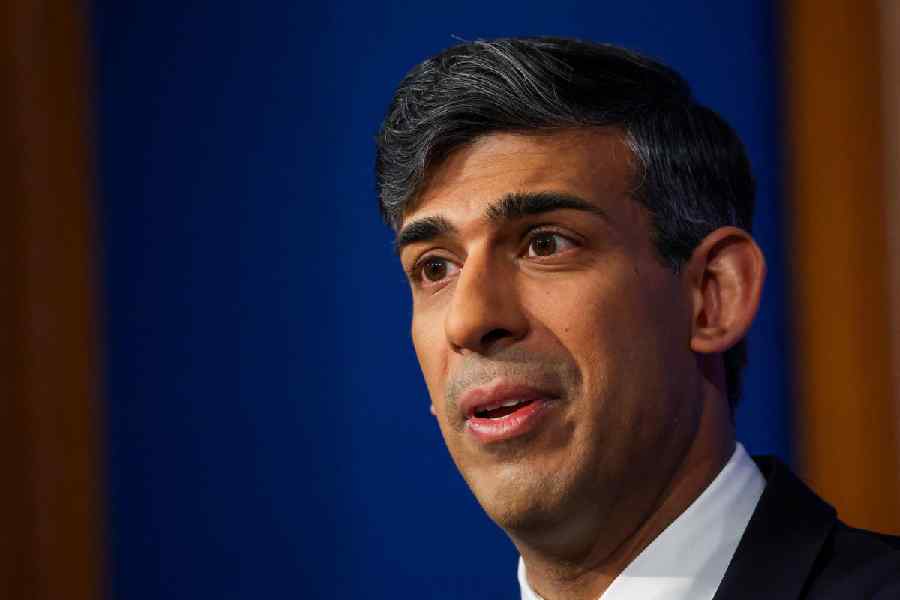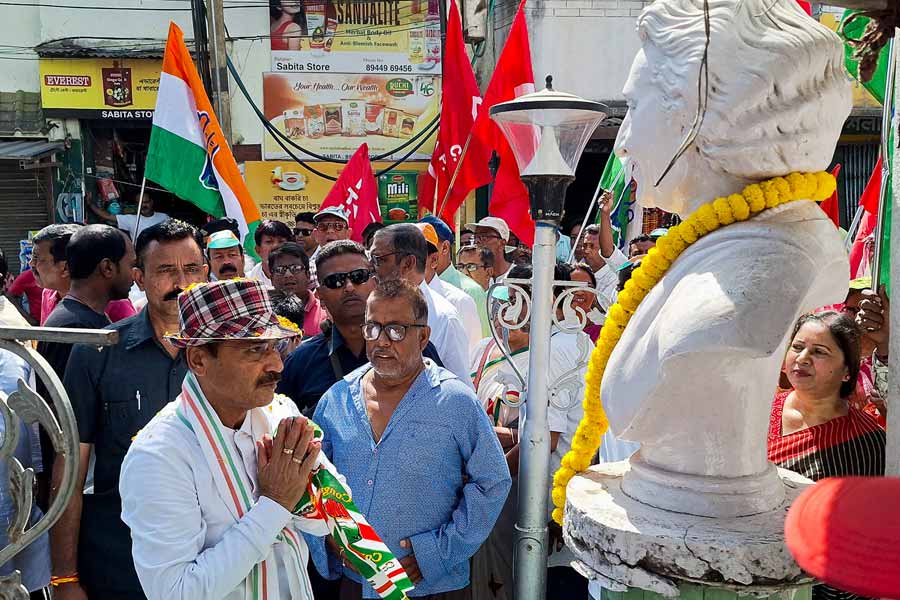The BJP has floated a campaign jingle whose tune makes it sound more like a war song than a prayer for votes for the Delhi Assembly elections on Saturday.
The Telegraph looks at how the song stacks up against a set of propaganda rules:
Rule 1: All propaganda must be presented in a popular form.
BJP song: Set to a martial tune heard in pulp-patriotic flicks, it makes the cut and is guaranteed to make many tap a foot.
Rule 2: It must fix its intellectual level so as not to be above the heads of the least intellectual of those it is directed at.
BJP song: Scores high on this count. A sample: “Dekh yeh kya ho raha/Tujhe o meri Dilli/ Dhongi dharna de rahe/Uda rahe hai khilli (Look what’s happening to you/ Oh my Delhi/ Charlatans are sitting in protest/ Mocking you).”
It doesn’t take a high intellectual level to figure out that the BJP is referring to the protests against the Citizenship (Amendment) Act. Not when the visuals accompanying the song helpfully show chief minister Arvind Kejriwal when the word “dhongi (charlatan)” is sung. The word “dharna” matches with the visuals of anti-CAA protests. “Khilli (mocking)” is heard when the image of Kanhaiya Kumar, who regularly torments the BJP with his speeches, flashes by.
Rule 3: The thought and conduct of the great majority of a nation are ruled by sentiment rather than by sober reasoning. This sentiment, however, is not complex, but simple and consistent. It is not highly differentiated, but has only the negative and positive notions of love and hatred, right and wrong, truth and falsehood.
BJP song: Hits bull’s eye. “Drohi (traitor or malevolent enemy)” is the keyword.
“Dilli tu ab jaag le/Zoron se gaanth baandh le/Har drohi tu pehchaan re/ Desh apna abhimaan re (Delhi, you wake up now/Buckle up/Recognise every traitor or enemy/The country is our pride.”

Shaheen Bagh finds special mention in the lyrics. “Hokar wahan naakaam woh/ Dubak ke Dilli aaye bhaag/Aur khade kar diye/ Saikron Shaheen Bagh (Having failed over there — Kashmir and Assam/They have fled to Delhi, tail between their legs/And erected here/Hundreds of Shaheen Baghs.”
Rule 4: The receptive powers of the masses are very restricted, and their understanding is feeble. On the other hand, they quickly forget. Such being the case, all effective propaganda must be confined to a few bare essentials and those must be expressed as far as possible in stereotyped formulas. These slogans should be persistently repeated until the very last individual has come to grasp the idea that has been put forward…. Every change that is made in the subject of a propagandist message must always emphasise the same conclusion. The leading slogan must of course be illustrated in many ways and from several angles, but in the end one must always return to the assertion of the same formula.
BJP song: The word “drohi” recurs with frightening frequency. At least eight times in the 4.28-minute song.
Diabolically, almost every time the word “drohi” is heard, the faces of Muslims or JNU students and former leaders or known critics of the government such as filmmaker Anurag Kashyap and Dalit leader Chandrashekhar Azad are seen on the video.
The other “usual suspects” — Akhand Bharat splitting up with the births of Pakistan and Bangladesh and a reference each to “foreigners”, when Rahul Gandhi and Priyanka Gandhi are shown, and “Mughals” — feature in the video.
DISCLOSURE
Where did this newspaper find the four propaganda rules against which the BJP song was matched and the party came out with flying colours?
From MEIN KAMPF, written in 1924 by one ADOLF HITLER.
The same Hitler had said: “Propaganda is a truly terrible weapon in the hands of an expert.”










